Kazakhstan, a reliable partner of Europe in an uncertain world
DERYA SOYSAL
Since the EU–Central Asia Summit, there is no longer any doubt: Europe is turning its gaze toward this region—primarily Kazakhstan and Turkmenistan in terms of transport. While Kyrgyzstan and Uzbekistan also attract European interest for gold and critical minerals, the focus should remain on the regional power, Kazakhstan, which holds a crucial position on the Caspian Sea.
Central Asia holds strategic importance for the EU due to its geopolitical position, bordering China, Russia, Iran, and Afghanistan. Additionally, Central Asia’s energy wealth makes energy cooperation a key area. Kazakhstan’s energy resources, in particular, are strategically significant for diversifying the EU’s supply sources.
Europe’s interest in the region is intensifying, and there is no doubt that Kazakhstan is currently Europe’s best partner. The fact that Kazakhstan lies on the easternmost frontier is another factor shaping its relations with the Union. Although Uzbekistan is drawing closer to its neighbor, Kazakhstan remains slightly ahead for several reasons. The Republic of Kazakhstan, which declared independence on December 16, 1991, quickly gained attention from many countries due to its strategic importance.
The main reason for this interest—from both regional countries and global players—is Kazakhstan’s immense economic potential, particularly its natural resources. Kazakhstan holds the second-largest gold reserves in the world. It also possesses 30% of the world’s chromium reserves, 25% of manganese, and 19% of lead reserves.
Kazakhstan is seen as a reliable partner for Europe. Since Kassym-Jomart Tokayev came to power in 2019, Kazakhstan has experienced economic growth, closer ties with Europe and Turkic countries, and a surge in tourism.
The country is also gaining international trust due to the reforms it has enacted. Under Tokayev’s presidency, Kazakhstan has undertaken major reforms that are globally recognized as part of his vision for building what he calls a “New and Just Kazakhstan.”
MAJOR REFORMS: The Road to a Thriving Democracy
Significant initiatives have been launched to strengthen governance, improve citizen welfare, and develop a strong and competitive economy. These efforts have largely been seen as successful, positioning Kazakhstan as a respected leader in Central Asia.
By adopting a presidential-parliamentary system, Kazakhstan is continuing its democratic transition. Widely regarded as one of the most important reforms, the country shifted from a super-presidential model to a presidential-parliamentary system in 2022—highlighted in Tokayev’s state-of-the-nation address.
Kazakhstan has embarked on a series of political and economic reforms aimed at transforming the country—from empowering Parliament, to a fairer distribution of wealth, and enhancing the role of the Assembly of the People of Kazakhstan. The ambition is to make Kazakhstan a stable and independent regional geopolitical power.
Tokayev has accelerated democratic reforms by shifting priorities. The June 2022 constitutional reform and the subsequent elections marked a promising start toward political democratization in Kazakhstan.
This decision paved the way for reforms to electoral laws, introducing a mixed electoral system for the lower house of Parliament (Mazhilis) and local representative bodies (maslikhats). These systems were tested in 2023, during elections held under the new model.
To further engage citizens, Tokayev proposed electing the heads of mid-level administrative units. In 2023, Kazakhstan held its first pilot elections for district and regional city governors (akims), with a voter turnout of 62.8%.
That same year, the Constitutional Court was reinstated following constitutional amendments approved in 2022. The court had been abolished in 1995 and replaced with a Constitutional Council. From January 2023 to April 2024, over 6,700 appeals were submitted to the court, mostly from citizens regarding housing, labor, social protection, bankruptcy, and access to information.
To support entrepreneurship, the government is launching non-financial programs to enhance business potential, encourage women’s entrepreneurship, and provide advisory services.
The EU and the United States have commended Kazakhstan for its progress on human rights and democratic reforms, noting that these areas are integral to a “new and dynamic Kazakhstan.”
GROWING ECONOMY
Kazakhstan’s economy is projected to grow by 4.6% in 2025. Strategic agreements with the US and the EU on hydrogen and critical minerals could attract more investment—especially if new tax policies are introduced.
Recently, Kazakhstan discovered one of the world’s largest reserves of rare earth elements. A major deposit was found in Karaganda with potential reserves of 20 million tons. Further exploration is needed. The site is estimated to contain nearly one million tons of cerium, lanthanum, neodymium, and yttrium—used in smartphones, digital cameras, and computer hard drives. “Four prospective zones have been identified with total rare earth reserves estimated at 935,400 tons,” said a spokesperson for the Ministry of Industry and Construction. If confirmed, Kazakhstan would rank among the top three countries globally in rare earth reserves.
KAZAKHSTAN’S MULTIVECTOR FOREIGN POLICY: A REGIONAL MODEL
Kazakhstan is increasingly seen as a regional model thanks to its multivector foreign policy. Tokayev continues this strategy by maintaining balanced relations with Russia, China, the US, and the EU.
Dreaming of becoming the “Asian Geneva,” Kazakhstan has developed a multivector diplomacy—dialoguing with both NATO members and rivals like Russia and China. This strategy enables it to position itself as a balancing point between global powers.
Kazakhstan is a partner to mutually opposing powers and serves as a discreet arena of rivalry between actors like Russia, China, the EU, and NATO. According to revueconflits.com, Kazakhstan is a quiet giant of global diplomacy.
Kazakhstan now aspires to be a geopolitical hub linking East and West. According to Kazakh authorities, the country should be the missing link connecting Asia and Europe—geographically, culturally, religiously, and economically. For over three decades, Kazakhstan has practiced a multivector policy to project influence simultaneously toward China, Russia, Turkey, the United States, and the EU, according to the IRIS (French Institute for International and Strategic Affairs).
“Kazakhstan’s Foreign Policy as a Model for Stability in an Unstable World” wrote Rossi Michael.
Beyond this balancing act, Kazakhstan has actively contributed to peace and regional security, showcasing the role middle powers can play in international diplomacy. Kazakhstan has provided platforms for negotiations in regional and international conflicts, using its neutral stance to facilitate dialogue.
One notable example is the Astana Peace Talks on Syria, where Kazakhstan has hosted negotiations since 2017 between the Syrian government, opposition groups, and international stakeholders such as Russia, Iran, and Turkey. While the Syrian conflict remains unresolved, Kazakhstan’s neutral position enabled it to host these talks. More recently, in May 2024, Kazakhstan offered a platform for negotiations between Armenia and Azerbaijan. Earlier this month, Azerbaijan accepted Kazakhstan’s proposal to host new peace treaty talks with Armenia in Astana.
Kazakhstan had also previously offered to host negotiations between Russia and Ukraine, according to Rossi Michael.
Kazakhstan is also a staunch advocate for nuclear disarmament. After closing the Semipalatinsk nuclear test site in 1991 and relinquishing the world’s fourth-largest nuclear arsenal, Kazakhstan has championed non-proliferation on the global stage.
ECONOMIC GROWTH
Tokayev’s mandate has been credited with overall economic growth, despite a contraction in 2020 due to COVID-19. GDP rose from $181.7 billion in 2019 to $288.1 billion in 2024, with GDP per capita reaching $14,300.
This growth has largely been fueled by public spending, with increased state revenues and expenditures. Tokayev has set an ambitious goal to double GDP by 2029, which would require a significantly higher annual growth rate.
Kazakhstan holds vast oil and gas reserves—two resources in high demand globally. Experts estimated in 2010 that the country has at least 30 billion barrels of proven oil reserves and 2.407 trillion cubic meters of natural gas. The Kashagan oil field in the Caspian Sea is considered one of the richest recent discoveries. Its oil production alone exceeds the total output of some major countries.
Kazakhstan also has nuclear potential. Although it recently suspended efforts to increase its nuclear capacity, it remains notable for its high potential in this field.
Kazakhstan, a reliable partner of Europe in an uncertain world
In summary, the EU aims to avoid overdependence on a small number of supplier countries. That is why it seeks strong trade relations with Kazakhstan, rich in oil and natural gas. For Kazakhstan, the importance of the EU lies in the volume of trade and foreign investment. Europe is one of the most important regions in Kazakhstan’s foreign policy.
The EU matters to Kazakhstan because of the size of its economic market, its level of prosperity, quality of life, and the values it represents—such as democracy, rule of law, human rights, and transparency. Kazakhstan wishes to sell its raw materials at global market prices and aspires to reach that level of prosperity by adopting these values.
The EU, on the other hand, seeks to ensure energy security while promoting its values. Kazakhstan is a key energy supplier to the EU and contributes to the diversification of supply sources for its markets. It is recognized as the Central Asian country with the richest diversity of underground resources and ranks among global leaders in several mining sectors
BIBLIOGRAPHIE
Kanchev, N. (2022). Към нови предизвикателства. Чуждоезиково обучение, 49(1), 7-8.
Köse, G. (2020). Orta Asya (Türkistan) Enerji Meselesi: Enerji Potansiyeli Ve Aktörler Central Asıan (Turkıstan) Energy Issue: Energy Potentıal And Actors. Uluslararası Sosyal Araştırmalar Dergisi. 13(72). 254-275:
Yılmaz, E. S., & Oğurlu, Y. (2013). Bölgesel güç olarak Avrupa Birliği ve dış politika. Ankara Avrupa Çalışmaları Dergisi, 12(2), 81-104
Yılmaz, A. A. (2023). Avrupa Birliği'nin yeni Orta Asya stratejisi ve AB-Kazakistan ilişkileri.
Kazakhstan, le virage démocratique | Conflits : Revue de Géopolitique
Diplomatie pragmatique : le modèle du Kazakhstan | Conflits : Revue de Géopolitique
Kazakhstan's Foreign Policy as a Model for Stability in an Unstable World - The Geopolitics
Kazakhstan is ready to provide platform for negotiations between Russia and Ukraine - Abayev











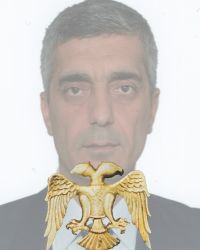
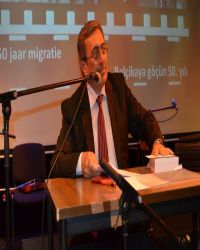



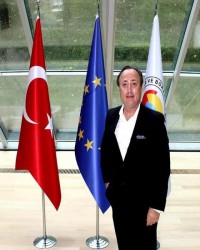
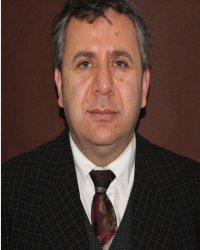

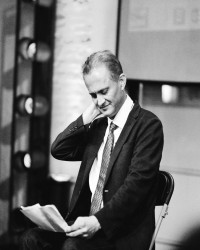
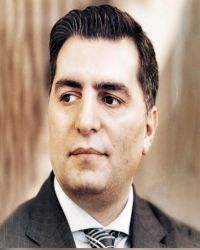

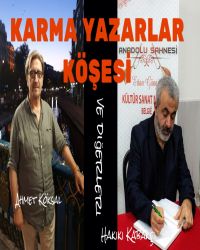

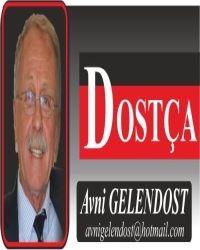
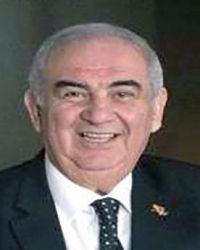
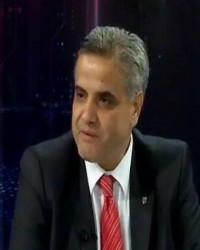

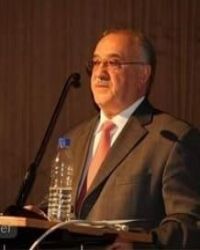

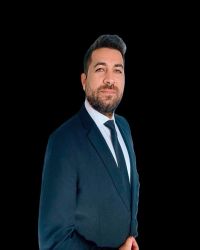
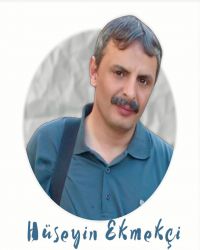



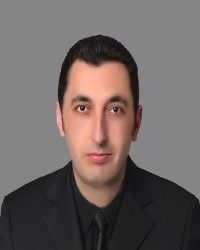



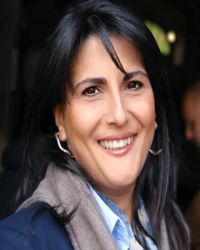


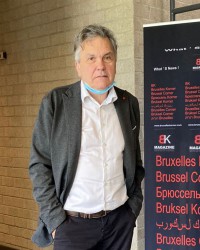
Yorum Yazın
Facebook Yorum